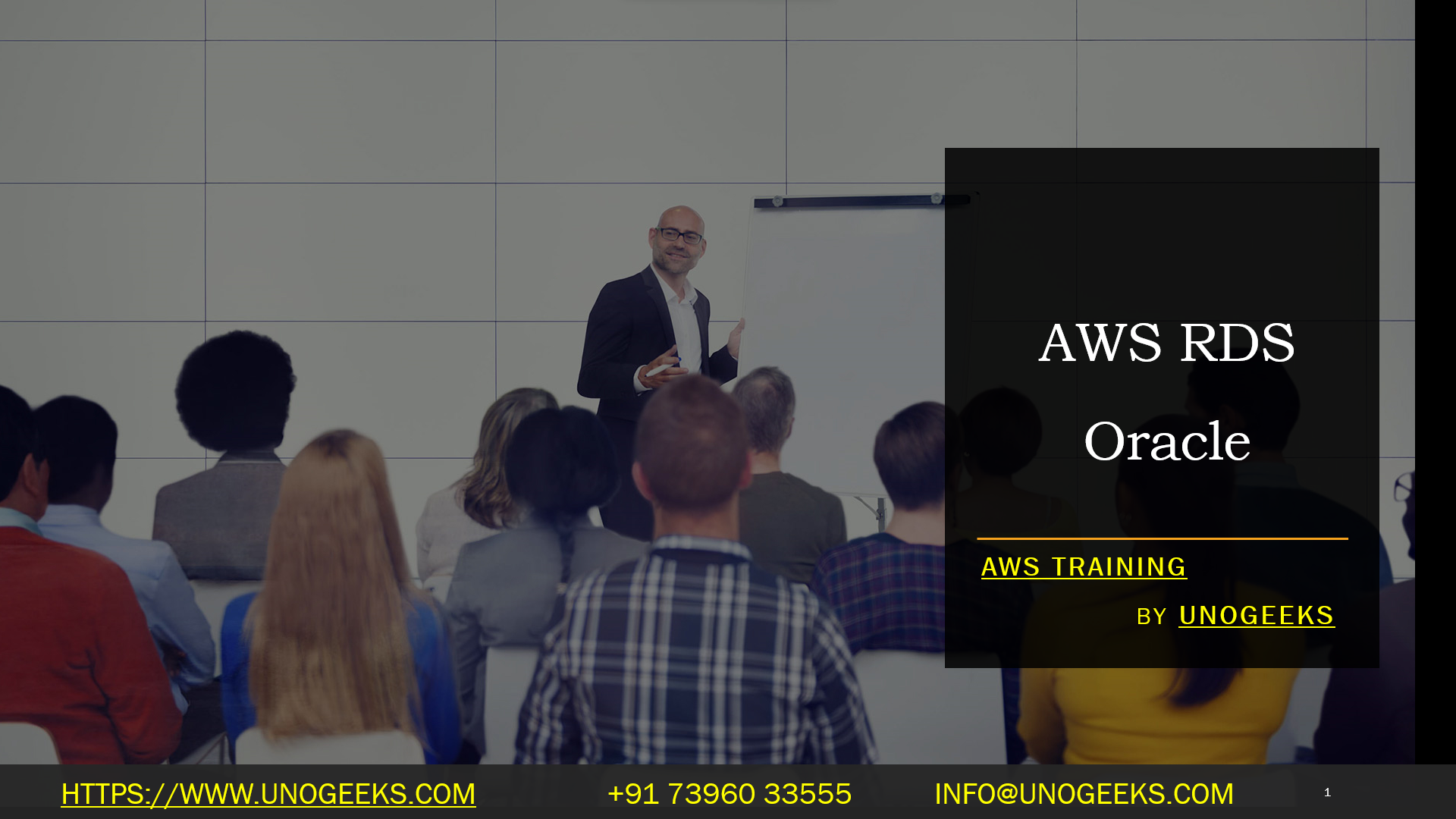AWS RDS Oracle
Amazon RDS (Relational Database Service) provides a managed database service for several database engines, including Oracle. This service helps in setting up, operating, and scaling a relational database in the cloud. Below are some key aspects of AWS RDS for Oracle:
1. **Versions Supported**: AWS RDS supports several editions of Oracle Database, including Oracle Database Standard Edition, Standard Edition One, Standard Edition Two, and Enterprise Edition.
2. **Ease of Management**: You can easily launch an Oracle Database instance and select its version, instance type, and other parameters. AWS takes care of routine database tasks such as hardware and software provisioning, setup, and backups.
3. **Scalability**: RDS for Oracle supports automatic scaling, which means that your database can grow or shrink to meet your application’s demands.
4**HighAvailability**:Amazon RDS provides high availability with a Multi-AZ deployment, meaning that in the case of a failure, RDS will automatically switch to a standby replica.
5. **Backup and Restore**: Amazon RDS supports automatic backups of your database, and you can also perform manual backups. You can restore to any point in time within your retention period.
6. **Security**: AWS RDS provides several layers of security, including network isolation with Amazon VPC, encryption at rest with AWS Key Management Service, and encryption in transit with SSL.
7. **Monitoring and Metrics**: Amazon RDS provides monitoring through Amazon CloudWatch, allowing you to view metrics for your database instances.
8. **Licensing**: Oracle Database licensing on Amazon RDS can be done through the “License Included” model where Oracle licensing is included with your instance pricing or “Bring Your Own License” (BYOL) if you have existing Oracle licenses.
9. **Integration with AWS Services**: RDS for Oracle can easily be integrated with other AWS services like AWS Lambda, Amazon S3, and AWS Glue.
10. **Maintenance**: Regular updates are made easy with Amazon RDS, with notifications for scheduled maintenance windows.
11. **Pricing**: Pricing is based on the instance type, storage type, and other selected options. You only pay for what you use, and there are no upfront commitments required.
12. **Limitations**: There may be certain limitations with RDS for Oracle compared to running Oracle on your own servers. For example, you might not have SYS or SYSTEM database access.
By using AWS RDS for Oracle, organizations can offload many of the administrative tasks associated with managing an Oracle database, allowing them to focus on building and deploying applications.
Remember to consult the AWS RDS documentation specific to Oracle for the most accurate and up-to-date information, as features and offerings may have changed since my knowledge cut-off in September 2021.
Demo Day 1 Video:
Conclusion:
Unogeeks is the No.1 IT Training Institute for Amazon Web Services (AWS) Training. Anyone Disagree? Please drop in a comment
You can check out our other latest blogs on Amazon Web Services (AWS) Training here – AWS Blogs
You can check out our Best In Class Amazon Web Services (AWS) Training Details here – AWS Training

———————————-
For Training inquiries:
Call/Whatsapp: +91 73960 33555
Mail us at: info@unogeeks.com
Our Website ➜ https://unogeeks.com
Follow us:
Instagram: https://www.instagram.com/unogeeks
Facebook:https://www.facebook.com/UnogeeksSoftwareTrainingInstitute
Twitter: https://twitter.com/unogeeks
